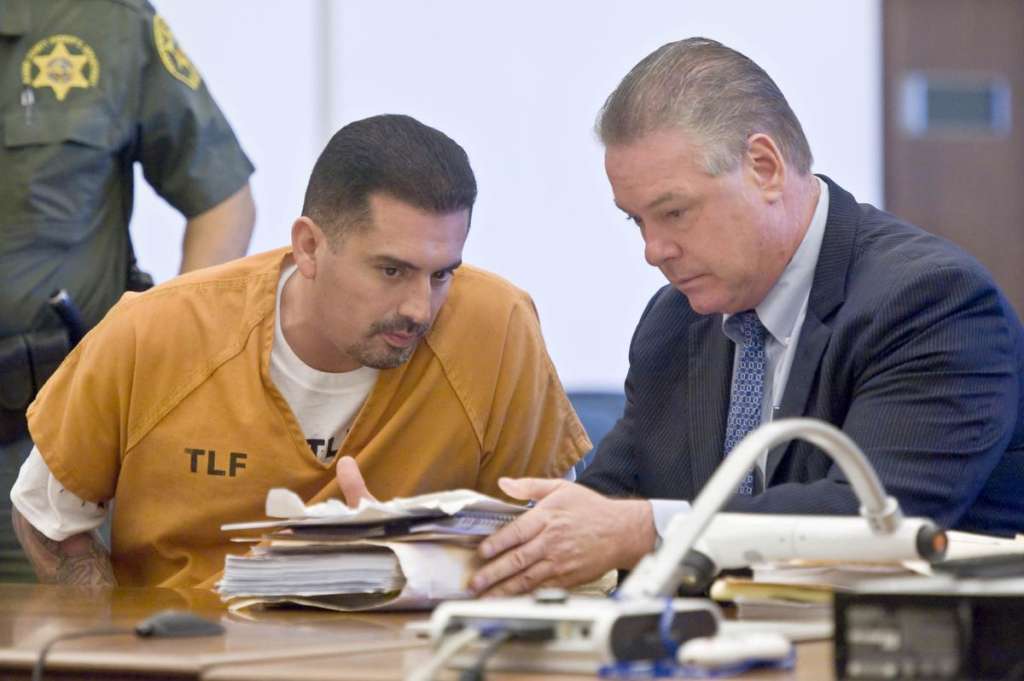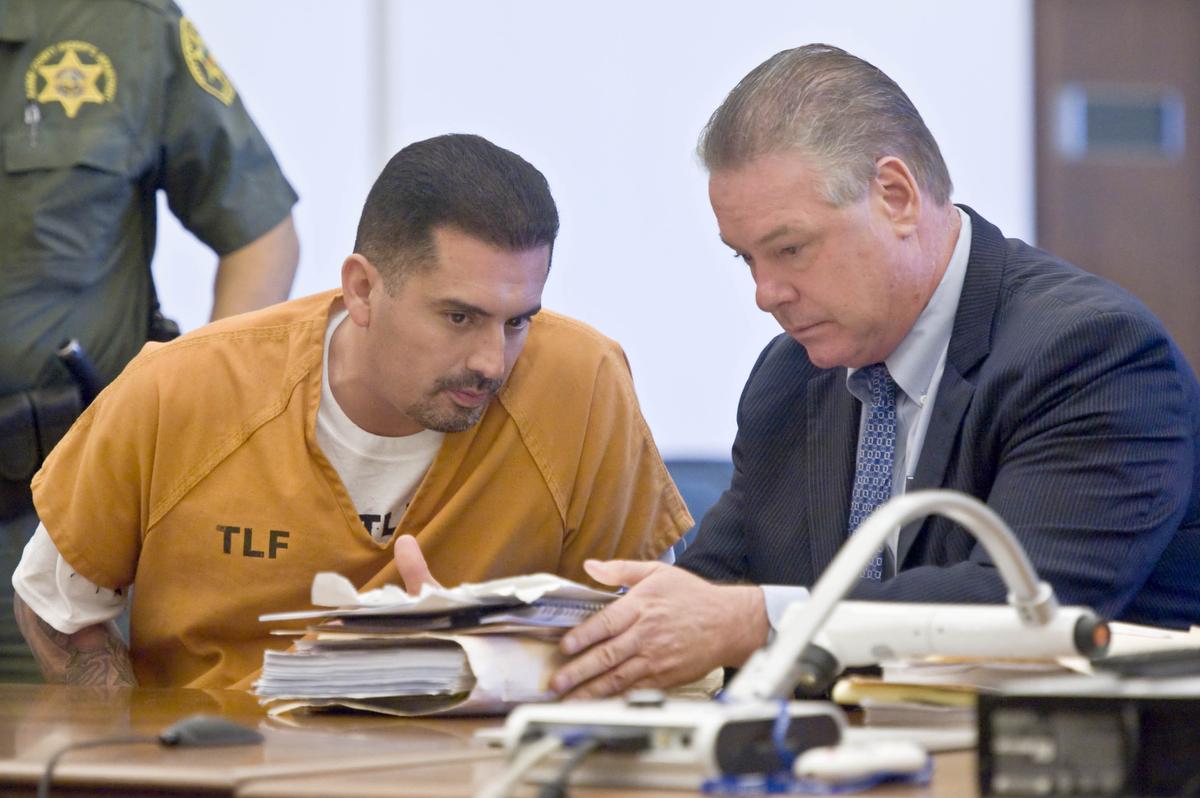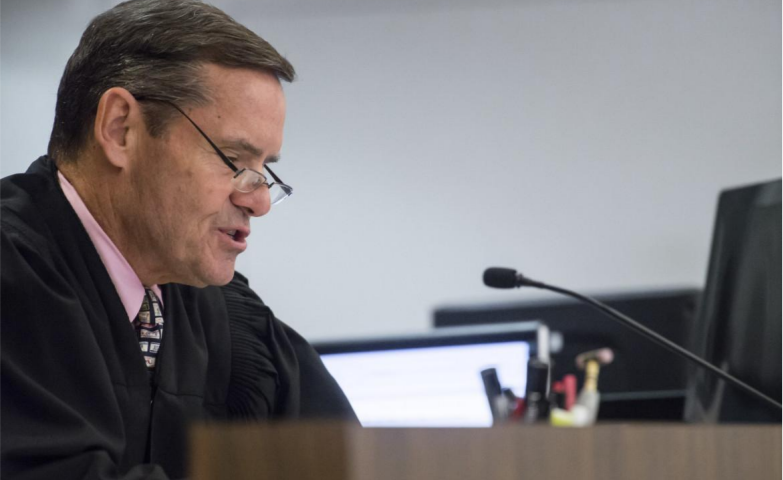
JAMES M. CRAWFORD
Criminal Defense & Appeals Attorney
Ratings


Memberships


Media Coverage




SANTA ANA – An Orange County judge on Thursday granted a retrial for a man twice convicted of a double murder – the latest case to unravel amid the controversy over the use of jailhouse informants by local police and prosecutors.
Superior Court Judge Thomas Goethals found that authorities withheld evidence from defense attorneys in the case against Henry Rodriguez, who is serving a life sentence for his role in the 1998 shooting death of a pregnant Fullerton woman.
Goethals is the same judge who removed the District Attorney’s Office from the penalty phase trial of confessed Seal Beach shooter Scott Dekraai, another case that involved the alleged misuse of a jailhouse informant and withheld evidence.
In Thursday’s ruling, Goethals said prosecutors failed to turn over records that showed a key witness in Rodriguez’s 2006 trial was a seasoned jailhouse snitch who previously gathered evidence for law enforcement agencies in several cases.
“The factual record in this case is troubling,” the judge said in his eight-page ruling.
Rodriguez, a 39-year-old Anaheim man who has been imprisoned for 17 years, will get a third trial. He will return to court April 11.
As the judge announced the ruling, Rodriguez’s mother, Virginia, wiped away tears. Said his father, Enrique Rodriguez, “Justice came to us today after 17 years, and we hope the trial will be the same way.”
The Orange County District Attorney’s Office vowed to appeal the judge’s decision. “We respectfully but vigorously disagree with Judge Goethals’ ruling,” said Susan Kang Schroeder, he district attorney’s chief of staff. “We will continue to fight for our victims: Jeanette Espeleta and her unborn daughter, Alyssa.”
At least six murder and attempted-murder cases have unraveled in the wake of hearings in the Dekraai case into defense allegations that prosecutors and police improperly used jailhouse snitches to obtain evidence against defendants after their arrests.
Under the law, authorities are barred from attempting to elicit incriminating statements from a suspect who is already represented by an attorney.
In November, Superior Court Judge Richard King granted a new trial for Eric Ortiz, who was convicted of murder but contends he was set up by a jailhouse informant.
King ruled that Ortiz could not receive a fair hearing after four sheriff’s deputies refused to testify in court on grounds of self-incrimination.
In the latest case, Rodriguez’s attorney, James Crawford, said prosecutors used an informant to gain incriminating statements and then withheld the evidence from the defense.
During last week’s hearing, Deputy District Attorney Eric Scarbrough argued that prosecutors were not legally required to turn over the office’s Defendant Informant Index card about informant Michael James Garrity, contending it was “work product” and did not contain key evidence for the defense.
Moreover, Scarbrough said, just because Garrity previously served as an informant doesn’t mean it was relevant to this case.
“The idea that an informant has worked as an informant before, that’s insufficient evidence to prove that he was working as an informant in this particular case,” he said.
In 2000, a jury found Rodriguez’s friend, Richard Tovar, guilty of killing Tovar’s girlfriend, Jeanette Espeleta, 20, who was eight months pregnant. He wanted to avoid paying child support.
Prosecutors allege Tovar enlisted Rodriguez to help him dump the body in the ocean off Long Beach. Rodriguez, though not present at the time of the killing, helped with the planning, prosecutors said.
Tovar is serving a sentence of life without parole.
In a separate trial, Rodriguez was convicted in 2000 after making statements about the crime to Fullerton police detectives. But a state appellate court panel overturned that conviction three years later, ruling that detectives coerced his confession and failed to inform Rodriguez of his right to remain silent.
While he awaited his second trial in 2005, Rodriguez’s defense team learned that the prosecution had Garrity, an informant who authorities said obtained a new confession from Rodriguez.
At the time, prosecutor Cameron Talley said Garrity wasn’t a veteran informant but rather a concerned fellow inmate who happened to talk to Rodriguez without police involvement, which is legal.
Crawford, looking for evidence that Garrity had been working with police, requested internal jail records but was told in court by Deputy County Counsel Laura Knapp that the records were confidential.
Superior Judge Frank F. Fasel allowed Garrity to testify during the trial, stating at the time, “There is nothing else before this court to indicate that Mr. Garrity was an agent as related to Rodriguez.”
In the trial, Garrity testified that Rodriguez referred to the pregnant victim as “shark bait” and told the informant that her body was stored in a trunk for a few days before Tovar and Rodriguez dumped the body in the ocean. Rodriguez was convicted again and sentenced to 40 years to life in prison.
A decade later, as the county’s snitch scandal unfolded, Crawford obtained Garrity’s jailhouse records, known as TRED records, which showed that Garrity was a confidential informant for the Orange County Sheriff’s Department, Riverside County authorities, and homicide detectives in Fullerton and Anaheim.
In one note to sheriff’s deputies, Garrity wrote, “I have been informing to the Fullerton homicide detectives about the Henry Rodriguez case.”
This year, as an evidentiary hearing was underway on Rodriguez’s request for a new trial, Crawford obtained what he called “smoking gun” evidence – a note card from the district attorney’s own Defendant Informant Index.
The index card for Garrity, unsealed by Goethals this month, said Garrity worked as an informant and received “consideration on cases” in Orange County.
The February 2005 entry notes that prosecutors have documents detailing Garrity’s history as an informant and instructs a prosecutor to “refrain from providing copies to defense unless ordered by the court.”
In closing arguments in the hearing last week, Crawford said prosecutors had the responsibility to turn over that information to the defense.
“They had the duty to look into Mr. Garrity’s background,” he told the judge. “The people didn’t ask for classification records, no request to the Sheriff’s Department and they failed to disclosed that he was a (confidential informant) on their own index.
“They put the stamp of approval on his forehead, saying Mr. Garrity was a confidential informant.”
The District Attorney’s Office on Thursday noted that Judge Fasel in March 2005 sealed most of Garrity’s records at the behest of the Orange County Sheriff’s Department, which contended the records were confidential. Prosecutors said the defense did receive a portion of the records in summary form.
Crawford commended the judge for his decision.
“The people hid, concealed and lied about the fact that Mr. Garrity was a well-established informant,” Crawford said. “They should do the right thing and dismiss the case, because they shouldn’t be allowed a third bite of the apple.”
Contact the writer: 714-834-3773 or kpuente@ocregister.com
Original article: https://www.ocregister.com/2016/02/25/new-murder-trial-ordered-in-orange-county-jailhouse-snitch-fallout/



